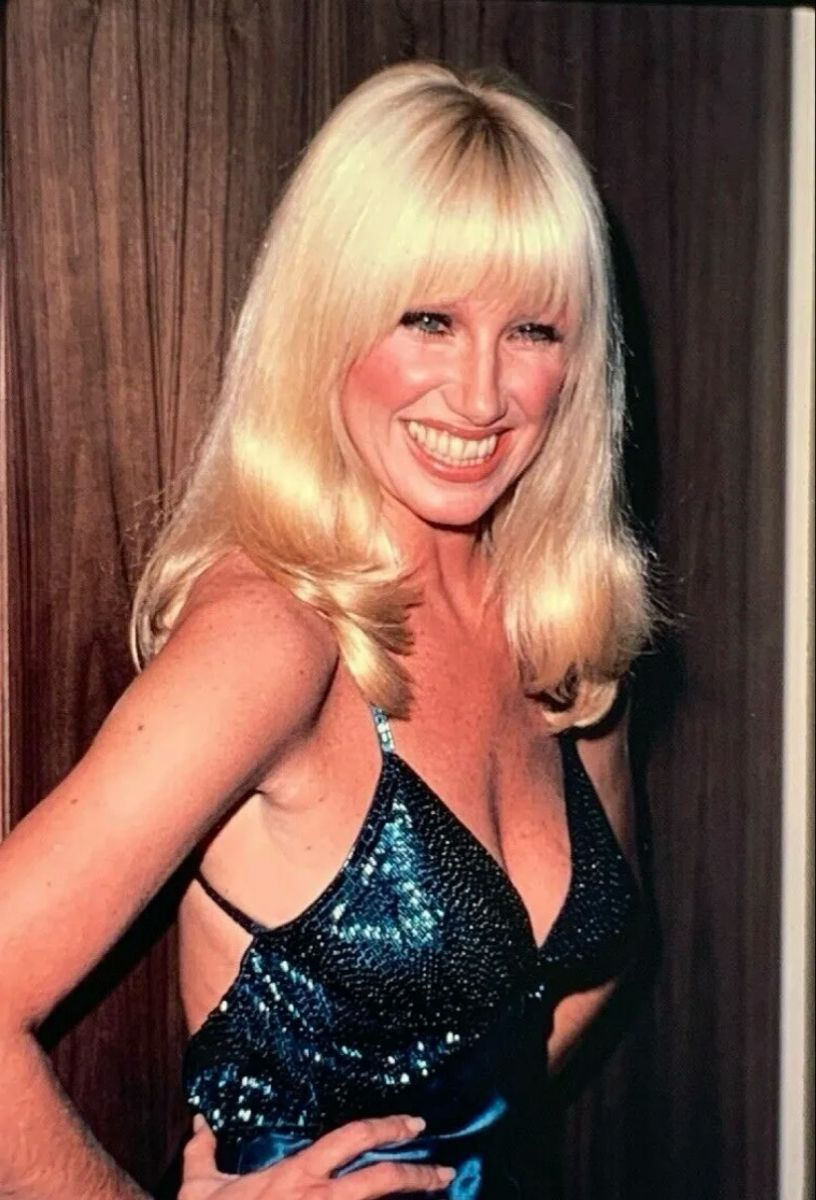
What If John Ritter, Joyce DeWitt, and Suzanne Somers Hadn’t Starred in Three’s Company?
Introduction: A Sitcom Without Its Stars
It’s hard to imagine Three’s Company without John Ritter’s slapstick charm, Joyce DeWitt’s grounded humor, or Suzanne Somers’ unforgettable charisma. The show became a staple of late ’70s and early ’80s television largely because of its iconic trio.
But let’s play a “what if” game. What if none of these three actors had taken the lead roles? Would the sitcom have been as successful? Could it have lasted for eight seasons? Or would it have been just another forgettable show in TV history?
Let’s explore the alternate universe of Three’s Company without Ritter, DeWitt, and Somers.
Why the Original Cast Was Irreplaceable
John Ritter — Comedy Personified

John Ritter didn’t just act — he brought physical comedy to life. His impeccable timing, expressive face, and knack for absurd situations were unmatched. Imagine a different actor trying to replicate his energy — it might have felt forced or stale.
Joyce DeWitt — The Anchoring Force

Joyce DeWitt grounded the chaos. Her sharp wit and ability to play the “straight man” balanced Ritter and Somers perfectly. Without her, the humor could have tipped into pure slapstick, losing the delicate balance that made the show relatable.
Suzanne Somers — The Charismatic Spark

Somers was more than a pretty face; she added sparkle, charm, and a touch of mischief. Her presence created tension, flirtation, and unforgettable comedy moments. Without her, the show might have lacked the dynamic that fueled so many storylines.
How a Different Cast Could Have Changed the Tone
Less Chemistry, Less Humor
Comedy thrives on chemistry. Replace Ritter, DeWitt, and Somers with competent actors, and yes, the jokes might land, but the electric energy between the three could vanish. The iconic misunderstandings, pratfalls, and innuendos might fall flat.
Risk of Overly Polished Acting
New actors might have over-rehearsed or tried to “act funny.” Three’s Company thrived because it felt spontaneous and messy — the perfect mix of planned chaos and genuine reaction.
Audience Reaction in a Different Universe
-
Ratings: Would it have climbed the charts without Ritter’s likable charm?
-
Fandom: Could viewers have formed the same attachment to an alternate trio?
-
Longevity: Eight seasons? Perhaps fewer.
Fans didn’t just watch a sitcom; they fell in love with personalities.
Alternate Casting Possibilities
Who could have replaced the trio?
-
Jackie Cooper or Tim Conway: Funny, but a different energy
-
Barbara Eden or Marcia Strassman: Would they match DeWitt’s grounding presence?
-
Any actress for Suzanne’s role: Could they capture her flirtatious, mischievous charm?
The reality: Few combinations could recreate the magic of the original cast.
Cultural Impact Without the Trio
The Show’s Place in TV History
Three’s Company influenced:
-
Sitcom format for roommate dynamics
-
Use of misunderstandings and innuendo as comedy
-
Ensemble-driven character humor
Without its stars, it might have been forgotten, like many short-lived sitcoms of the era.
Pop Culture References
John Ritter, Joyce DeWitt, and Suzanne Somers became icons. Catchphrases, slapstick moments, and wardrobe choices entered pop culture consciousness. Another cast? Possibly none of these would resonate the same way.
How Writing Might Have Changed
Writers tailored scripts for the strengths of Ritter, DeWitt, and Somers. Without them:
-
Physical comedy might be reduced
-
Scripted misunderstandings might lose punch
-
Storylines leveraging chemistry might be altered
In short, the script itself could feel weaker, because comedy isn’t just on paper — it’s performed.
The Role of Improvisation
Many classic moments came from actors improvising. Ritter’s ad-libs, Somers’ playful responses, and DeWitt’s subtle reactions created timeless scenes. Without them, improvisation could have been minimal or nonexistent, making the show less memorable.
Awards and Recognition
-
Emmy nominations: Likely fewer
-
Media attention: Possibly smaller
-
Fanbase: Less devoted
Without the trio, Three’s Company could have been just another sitcom lost in syndication.
Viewer Attachment and Nostalgia
Fans remember the original cast fondly. Nostalgia isn’t just about the show — it’s about the actors embodying these roles. A different cast might not evoke the same emotional connection decades later.
Lessons From Other Shows With Cast Changes
Shows like:
-
Bewitched (Elizabeth Montgomery)
-
I Love Lucy (Lucille Ball)
-
Friends (The original pilot had different actors for some roles)
All demonstrate that changing the main cast can dramatically alter the outcome, chemistry, and cultural impact.
Could Another Cast Have Succeeded?
Possibly. But:
-
Success likely smaller and shorter-lived
-
Cultural impact weaker
-
Fandom less passionate
The magic of Three’s Company relied on the original trio.
Why This Thought Experiment Matters
It shows that casting is everything. Great writing alone isn’t enough — chemistry, charisma, and personality make a sitcom iconic. Ritter, DeWitt, and Somers weren’t just actors; they were the show’s heart and soul.
Conclusion: The Original Trio Was Unstoppable
Imagining Three’s Company without John Ritter, Joyce DeWitt, and Suzanne Somers is like imagining:
-
Seinfeld without Jerry
-
I Love Lucy without Lucy
-
Friends without Jennifer Aniston
Sure, a show might exist, but it wouldn’t resonate the same way. The humor, timing, and chemistry that made Three’s Company legendary depended on their unique talents.
Some sitcoms are written, some are cast — and Three’s Company proves that casting can define a legacy.
FAQs
1. Could Three’s Company succeed without the original trio?
Unlikely. The show’s humor, chemistry, and charm revolved around Ritter, DeWitt, and Somers.
2. Would a new cast change the show’s tone?
Yes. The dynamic balance between slapstick, wit, and flirtation might be lost.
3. Did the actors improvise on set?
Absolutely. Many iconic scenes came from ad-libs that enhanced comedy.
4. How important was chemistry for the show’s success?
Crucial. Audience connection was based on how the trio interacted.
5. Are there examples of sitcoms failing after cast changes?
Yes, many shows with recast leads struggled to maintain ratings and fan attachment.
